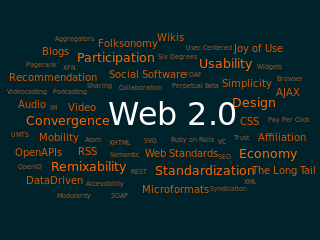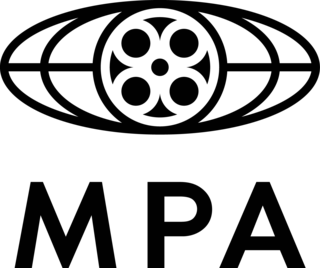Related Research Articles

A wiki is a hypertext publication collaboratively edited and managed by its own audience directly using a web browser. A typical wiki contains multiple pages for the subjects or scope of the project and could be either open to the public or limited to use within an organization for maintaining its internal knowledge base.
Desktop publishing (DTP) is the creation of documents using page layout software on a personal ("desktop") computer. It was first used almost exclusively for print publications, but now it also assists in the creation of various forms of online content. Desktop publishing software can generate layouts and produce typographic-quality text and images comparable to traditional typography and printing. Desktop publishing is also the main reference for digital typography. This technology allows individuals, businesses, and other organizations to self-publish a wide variety of content, from menus to magazines to books, without the expense of commercial printing.

An independent film, independent movie, indie film, or indie movie is a feature film or short film that is produced outside the major film studio system, in addition to being produced and distributed by independent entertainment companies. Independent films are sometimes distinguishable by their content and style and the way in which the filmmakers' personal artistic vision is realized. Usually, but not always, independent films are made with considerably lower budgets than major studio films. In fact, it is not unusual for well known actors who are cast in independent films to take substantial pay cuts if they truly believe in the message of the film, or because they want to work under an independent director who has a solid reputation for being highly talented, or if they are returning a favor. There are many examples of the latter, including John Travolta and Bruce Willis taking less pay to star in Pulp Fiction.
An application program is a computer program designed to carry out a specific task other than one relating to the operation of the computer itself, typically to be used by end-users. Word processors, media players, and accounting software are examples. The collective noun refers to all applications collectively. The other principal classifications of software are system software, relating to the operation of the computer, and utility software ("utilities").

Web 2.0 refers to websites that emphasize user-generated content, ease of use, participatory culture and interoperability for end users.

The free-culture movement is a social movement that promotes the freedom to distribute and modify the creative works of others in the form of free content or open content without compensation to, or the consent of, the work's original creators, by using the Internet and other forms of media.
Open-source governance is a political philosophy which advocates the application of the philosophies of the open-source and open-content movements to democratic principles to enable any interested citizen to add to the creation of policy, as with a wiki document. Legislation is democratically opened to the general citizenry, employing their collective wisdom to benefit the decision-making process and improve democracy.

A Portapak is a battery-powered, self-contained video tape analog recording system. Introduced to the market in 1967, it could be carried and operated by one person.

Wikipedia is a free content, multilingual online encyclopedia written and maintained by a community of volunteers through a model of open collaboration, using a wiki-based editing system. Individual contributors, also called editors, are known as Wikipedians. It is the largest and most-read reference work in history. It is consistently one of the 15 most popular websites ranked by Alexa; as of 2021, Wikipedia was ranked the 13th most popular site. It is hosted by the Wikimedia Foundation, an American non-profit organization funded mainly through small donations.

Michael Shamberg is an American film producer and former Time–Life correspondent.
Guerrilla television is a term coined in 1971 by Michael Shamberg, one of the founders of the Raindance Foundation; the Raindance Foundation has been one of the counter-culture video collectives that in the 1960s and 1970s extended the role of the underground press to new communication technologies.

Dean Evenson is a new-age musician, composer, producer and videographer. His hometown is Staten Island, New York. He has a master's degree in Molecular Biology. He worked in Manhattan as a recording engineer for Regent Sound with many Atlantic recording artists including Eric Clapton, Mose Allison, Roberta Flack. Dean plays several instruments including the Western concert flute, Native American flute, synthesizer, and keyboards. In the New Age genre, his music is generally sounds of nature combined with flute melodies and other instruments for ambient and meditative purposes. His music is often used for massage, meditation, yoga and relaxation.
Vimeo, Inc. is an American video hosting, sharing, and services platform provider headquartered in New York City. Vimeo focuses on the delivery of high-definition video across a range of devices. Vimeo's business model is through software as a service (SaaS). They derive revenue by providing subscription plans for businesses and video content producers. Vimeo provides its subscribers with tools for video creation, editing, and broadcasting, enterprise software solutions, as well as the means for video professionals to connect with clients and other professionals. As of 2021, the site has 200 million users, with around 1.6 million subscribers to its services.
Raindance Foundation was founded in October 1969 by Frank Gillette, Paul Ryan, Michael Shamberg, Louis Jaffe, and Marco Vassi. Raindance was a self-described "alternate culture think-tank" that embraced video as an alternative form of cultural communication.
Content is the information and experiences; directed at an end-user or audience in publishing, art, and communication. Content is delivered via different media including, the Internet, cinema, television, radio, smartphones, audio CDs, books, e-books, magazines, and live events. Live events include speeches, conferences, and stage performances. These mediums are considered a "social object" where discussions occur, and helps people to interact with others. An extension to how people communicate and relate to one another when it comes to the content they come across. Content within media focuses on the attention and how receptive the audience is to the content. Circulation brings the content to everyone and help spread it to reach large audiences. It is a process in which everyone who encounters any type of content will go through a cycle where they encounter the content, interpret it, and continues to share it with other people.

The Motion Picture Association (MPA) is an American trade association representing the five major film studios of the United States, as well as the video streaming service Netflix. Founded in 1922 as the Motion Picture Producers and Distributors of America (MPPDA) and known as the Motion Picture Association of America (MPAA) from 1945 until September 2019, its original goal was to ensure the viability of the American film industry. In addition, the MPA established guidelines for film content which resulted in the creation of the Motion Picture Production Code in 1930. This code, also known as the Hays Code, was replaced by a voluntary film rating system in 1968, which is managed by the Classification and Rating Administration (CARA).
Beryl Korot is an American video artist.
Paul Louis Ryan (1943–2013) was an American video artist and communications theorist. His video art encompassed water studies and demonstrations of what Ryan called “a yoga of relationships” or Threeing, culminating in his theoretical development of the Peircean relational circuit and Earthscore notational system.
Frank Gillette is an American video and installation artist. Interested in the empirical observation of natural phenomena, his early work integrated the viewer's image with prerecorded information. He has been described as a "pioneer in video research [...] with an almost scientific attention for taxonomies and descriptions of ecological systems and environments". His seminal work Wipe Cycle –co-produced with Ira Schneider in 1968– is considered one of the first video installations in art history. Gillette and Schneider exhibited this early "sculptural video installation" in TV as a Creative Medium, the first show in the United States devoted to Video Art. In October 1969, Frank Gillette and Michael Shamberg founded the Raindance Corporation, a "media think-tank [...] that embraced video as an alternative form of cultural communication.
Global Village Video was a pioneering Manhattan-based media center that operated from the late 1960s to the 1980s. It produced and showcased "Guerilla TV" style documentaries that featured subject matter and stylistic qualities not seen on mainstream television of the period. Using the battery-operated Sony CV video portapak introduced in 1968, Global Village also trained numerous artists and activists in the new technology, launched the first major video and film festival devoted solely to documentaries, as well as spearheaded a movement to get the work of independent producers on public television.
References
- ↑ Pamela Fraser; Roger Rothman (6 April 2017). Beyond Critique: Contemporary Art in Theory, Practice, and Instruction. Bloomsbury Publishing. pp. 17–. ISBN 978-1-5013-2345-4.
- ↑ David Joselit (2007). Feedback: television against democracy . MIT Press.
- ↑ Creating Radical Software: A Personal Account | Rhizome
- ↑ Melanson. "Radical Software" in: Downing, John, ed. (2011), Encyclopedia of social movement media, Thousand Oaks, Calif: SAGE Publications, Inc., OL 24438261M
- ↑ Chris Meigh-Andrews (7 November 2013). A History of Video Art. Bloomsbury Publishing. pp. 114–. ISBN 978-0-85785-189-5.